
Ela Radošević obtained a Master in Organic and Physical Chemistry at University of Zagreb in November of 2020 discussing an experimental thesis entitled “Asymmetric allylic dearomatization reaction in potential kinase inhibitor synthesis”. In September of 2020 she joined a CRO company Fidelta Ltd. as a Research Scientist in the Department of Medicinal Chemistry. And now, she is starting PhD in Medicinal Chemistry at University of Bologna within the TClock4AD project.
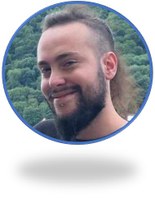
My name is Dionysis and I am a 25 year old student from Greece. I got my B. Sc. in Pharmacy from the National and Kapodistrian University of Athens in 2021, and I am now completing my Master’s degree on Pharmaceutical Chemistry and Drug Design. Personally, I am an extroverted character and a free spirit. Apart from research, I enjoy playing music, reading books and travelling, experiencing new cultures and ways of life. I am really excited about joining the TClock4AD network and getting a chance to contribute to this exceptional project.
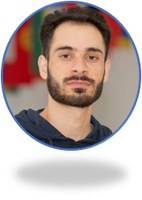
I am Shahzeb Khan, from the beautiful region of Swat, Pakistan, I completed my Bachelor's Microbiology degree at the University of Swat before pursuing my Masters at the Skolkovo Institute of Science and Technology in Moscow, Russia. During my time at Skoltech, I my thesis work was dedicated to “structural characterization and identification of novel mosquito repellents targeting the Odorant receptor co-receptor of Anopheles gambaie”, honing my skills in Computer-Aided Drug Discovery (CADD), molecular dynamics simulations, and machine learning implementation. My academic journey has led me to be selected as a Marie Curie TClock4AD scholar, where I will be working with Nostrum Biodiscovery on de novo drug development for Alzheimer's disease, with a specific focus on targeting the circadian clock. I am excited about this opportunity to contribute my knowledge and skills to such a meaningful research project and make a positive impact on the lives of those affected by Alzheimer's.
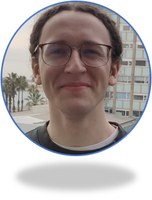
In 2021, I graduated with a BSc in Biochemistry from the Autonomous University of Madrid (Spain). During my final year, I gained hands-on laboratory experience at the Spanish National Center for Biotechnology, working on my bachelor's thesis in the Plant Genetics department. At the same time, I had my first encounter with Bioinformatics and became interested in its multiple applications and interdisciplinary nature. Consequently, I enrolled in the MSc in Bioinformatics for Health Sciences at Pompeu Fabra University in Barcelona (Spain). For my master's thesis, I worked in the GPCR Drug Discovery group of the Hospital del Mar Research Institute, where I carried out and analyzed MD simulations to study signaling bias at the dopamine D2 receptor. This allowed me to "see" biomolecules in a way that I had never thought before, and made me excited about applying computational techniques to advance pharmacological research.
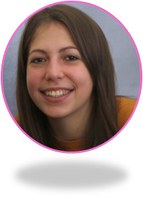
I am Irene Castellino and I obtained my MSc in Pharmaceutical Chemistry and Technologies at the University of Turin (Italy) in 2023. I am deeply interested in in silico design, synthesis and pharmacological evaluation of new chemical entities as drug candidates. I deepened these fields during my one-year long master’s internship, during which I worked on the design and synthesis of new small molecule to target malaria disease, and during my Erasmus+ internship at the University of Bradford (UK), where I worked on synthesis and in vitro evaluation of prodrugs with antitumor activity.

My name is Lobyntseva Alexandra, I was born on 15 February 1997 in Russia, Volgograd. I studied biotechnology as my first degree at Moscow State Medical University, defended my thesis in regenerative medicine, and graduated with honors. Concurrently, I obtained an additional degree in medical translation. Pursuing my research interests, I moved to Israel for my master's at Sackler Medical School, Tel Aviv University. I did my research in Prof. Illana Gozes's lab, and my research centered on the ADNP gene/protein. I am passionate about advancing my research career, making the TCLock4AD Ph.D. position a wonderful opportunity.
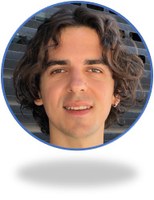
I was born on January 18, 1997, in Rossosh, Voronezh oblast, Russia. Afer graduating with honors from high school, I earned a full scholarship to study at Sechenov University in Moscow. During my senior years there, I started my career at the Research Centre for Medical Genetics, where I participated in research projects focused on inherited metabolic diseases and functional genomics. This experience developed my lab skills and fostered a strong interest in scientific research, which ultimately led me to apply for the PhD position within the TClock4AD project.
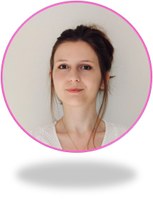
I began my pharmacy studies in 2017 at the University of Rennes (France), during which I specialized in industrial scaling and analysis techniques. Simultaneously, in 2022, I pursued a MSc in Pharmaceutics at the University of Paris (France) to receive a training on formulation development. My master’s thesis was conducted at the University of Montreal (Canada) and focused on the development of solid lipid nanoparticles for the oral delivery of a drug candidate for phase II clinical trials.

I am a neuroscientist, a traveller, and an amateur naturalist. I am interested and curious about everything of neurodegenerative diseases, especially Alzheimer’s disease and Parkinson’s disease. Here in TClock4AD, I will combine my expertise in wet-lab experiments and data-driven approaches to clarify the mysteries underlying circadian clock and AD.

Originally from Cyprus, I completed my BSc in Biochemistry at the University of Sheffield and then moved to London to study Neuroscience at King’s College London. For the past four years I have been a Research Technician with Prof Michael Duchen at UCL, exploring metabolic dysfunction in various forms of neurodegeneration. My research interests lie primarily in the areas of in-vitro disease modelling and cellular neuroscience. During my PhD, I aspire to develop robust tools to faithfully model the ageing nervous system to accelerate drug discovery

She graduated in Pharmaceutical Chemistry and Technology from the University of Parma. Her academic background included a thesis on the design and synthesis of pyrimidin-3(4H)-one derivatives at the University of Helsinki. She later completed a postgraduate internship at the University of Copenhagen, focusing on selective ligands for the extrasynaptic GABA-A receptors. Passionate about medicinal chemistry and neuroscience, Silvia recognises the pressing need for effective Alzheimer's treatments, driving her active pursuit of novel therapeutic drugs. With a dedicated focus on applying her expertise, she aims to develop innovative and successful treatments, positively impacting the lives of affected individuals and their families.
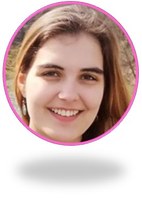
Tânia Alves will be working on the project “Targeting epigenetic control of clock genes in neural stem cells (NSCs)” as a doctoral student. She completed her undergraduate degree in Biochemistry at the Faculty of Science of the University of Porto and her master’s degree with a major in Molecular Biology at the University of Gothenburg. Combining her research interests in neurobiology and molecular biology, her master dissertation project focused on elucidating how ABCD1 deficiency alters the role of phagocytes during demyelination in the neuroinflammatory disorder, X-linked adrenoleukodystrophy.
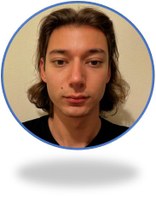
I am Nikolaos Vareltzakis born and raised in Greece. For the past five years I have been living in Edinburgh, Scotland, where I completed both my undergraduate degree in Biological Sciences in Heriot-Watt University and my Master’s degree in Drug Design and Biomedical Science in Edinburgh Napier University. My scientific interests include (neuro)immunology and inflammation. I aspire to make significant contributions to the field of AD with the ultimate purpose of reducing human suffering and providing novel treatments to benefit patients. I am honoured to embark on this collaborative journey to develop the remarkable TClock4AD project.
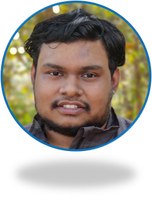
I am Mrutyunjaya Panda, born and raised in India. Previously, I completed my undergraduate and postgraduate degrees in Life Science at the National Institute of Technology, Rourkela. My scientific interests include molecular biology, cellular physiology, autophagy, and neurodegeneration. As a curious and proactive researcher, I have always been passionate about science and inspired by the varied manifestations that scientific research can bring forth in the contemporary world of innovation. I am pleased to embark on this collaborative journey within the TClock4AD consortium, where I will work on the circadian control of mitophagy in neuronal degeneration associated with Alzheimer’s disease.

I obtained B.A degree in Foreign Languages and Literature from Nanjing Normal University, China. Driven by curiosity and fascination with the health industry, I pursued M.Sc in Healthcare Management at Catholic University of Sacred Heart, Italy, specialized in Pharmaeconomics and Health Technology Assessment, and graduated with cum laude. Extensive work experience in the consulting and pharmaceutical companies has made me a more practical professional. Through this Ph.D program, I am poised to make a meaningful contribution to the research filed in Commercialization of Drug Development for ADs.
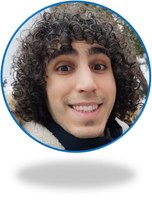
I am Alexandros Zantis born and raised in Cyprus, a beautiful island with an extraordinary history. My previous studies include a BSc with Honours in Chemistry from the University of Newcastle upon Tyne, where I gained general theoretical knowledge in the field and practical experience through the weekly experimental lab work. Furthermore, I decided to increase in-depth my theoretical knowledge in the field and learn how the use of computer simulations can be used to address different chemistry related problems. That is why I went into further studies by pursuing MSc degree in Theoretical and Computational Chemistry at Uppsala University.
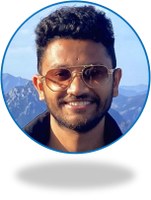
I am Kazi Ishrak Faiyaz and I am from Bangladesh. My interest in neurological disorders has piqued my interest in learning more about their underlying mechanisms. It's an honour to participate in the TClock4AD project and learn about circadian disruption's many effects on Alzheimer's disease.